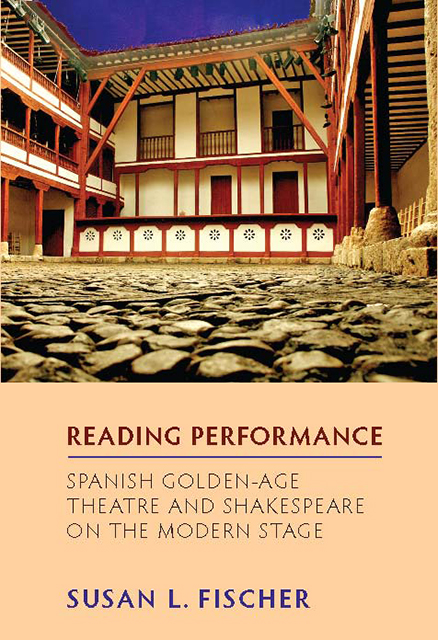13 - Lope and the masks of reality Pedro et le Commandeur (Peribáñez y el comendador de Ocaña)
Published online by Cambridge University Press: 28 February 2023
Summary
Translations: the movement of meanings
Florence Delay's faithful rendering of Peribáñez, denominated Pedro et le Commandeur, reached the boards of the Comédie-Française in 2006 under the aegis of Colombian director Omar Porras, who had founded the Geneva-based Teatro Malandro in1990. If, on the one hand, Rufus Norris's 2002 English staging of Peribanez with London's Young Vic Company had manipulated certain scenes and the play's ending in response to the perceived challenges of adapting an early modern comedia for the (post)modern English stage (see Chapter 11), on the other, Porras's French mise-en-scène treated the text as a pretext for his own magical, organic, and corporeal theatre. Porras’s theatrical work is perhaps best understood in terms of the Brechtian notion of gestus, the physical potentiality of the poetic word: “Que le personnage soit le corps fécondé par le texte. Que le texte soit le prétexte: moins l’eau qui entre dans la bouteille et en épouse la forme que le vin qui entre dans le corps et sait éveiller d’autres gestes, d’autres souvenirs” (“Pedro”). Informed by Western and Eastern traditions, biomechanics, and Balese, Indian, and Japanese theatre practices, as well as by (wo)men of the arts such as Tadeusz Kantor, Peter Brook, Ariane Mnouchkine, Pina Bausch, Benno Besson, and Antonin Artaud, Porras aims to “revenir à toutes les sources du théâtre, à tous les rituels qui fondent l’art énigmatique de la représentation et qui scellent l’harmonie mystérieuse de l’acte et de la parole” (Celik, “Porras” 8). His actors work simultaneously with techniques of theatre, dance, masks, marionettes, and music to tap their creative potential in spiritual and corporeal terms.
If directors are always already committed to the re-telling of a story, scholarly exegesis of classical texts notwithstanding, Porras's reading of Peribáñez was the following: “Dans sa beauté et son érotisme, Casilda rejette avec mépris le féodalisme anarchique d’une Espagne violente et déchirée” (“Pedro”). The political implications of the play rang clear for today's world: “Pedro, laboureur, devient un leader paysan qui part affronter les puissants. Pour tenir son rang et conserver l’amour de sa femme, il doit transgresser une série de lois que le destin lui oppose” (Celik, “Peinture” 122).
- Type
- Chapter
- Information
- Publisher: Boydell & BrewerPrint publication year: 2009



